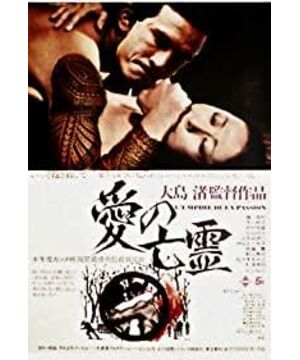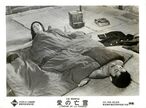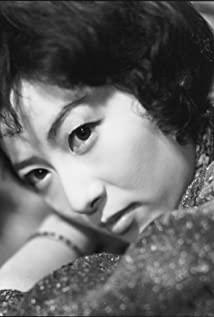The matter of people and ghosts has always been a popular theme among the people. In the face of all unknowns, people often use values that conform to the society and turn them into anecdotes and anecdotes. "Empire of Passion" is a 1987 French-Japanese film directed by Nagisa Oshima. The story takes place in 1895 after the Meiji Restoration, and Japanese society is facing large-scale changes, and this film focuses on the story of a small village under the change.
"The Undead of Love" describes the emotional changes of the three people. Like many Japanese strange stories such as Hundred Monogatari, there are ghosts and people, and cause and effect. Ashi and Fengji murdered her husband, Yi Saburo, the driver of the car, and threw them into a well. Since then, the two have had a happy affair. Unexpectedly, three years later, Ashi saw Yi Saburo's ghost at home again, and strange things continued one after another. A Shi couldn't bear the mental fear, and the two cheating lovers began a series of days of escaping from the ghost.
Love and hatred, still behind
Just like the stories from Hundred Stories such as "Ghost Ah Chu" and "Yotani Strange Story", the emotions of all the deceased can also be seen in "Undead of Love". But in this film, the emotional performance of the driver, Yi Saburo, is not lively. His undead rarely speaks, and his every move is silent, like silently recalling the past, or making a final excuse for his emotions.
Yi Saburo recognized his identity comfortably before his death, and he, who became a undead, made these emotional characteristics more vivid through light and shadow and makeup. Explaining him as "the undead of love", the emotions in it can be simple or complicated; but more often, the camera gives information other than the lines. All of Yi Saburo's messages were conveyed through others, and when Yi Saburo really appeared, he was always taciturn.
In "Love of the Dead", the emotions of the deceased are presented smoothly through a small number of pictures: he still misses his family after death, he is crying, he is avenging, the cool-toned scenes interspersed between Fengji and Ashi seem like The thorn pierced out of the comfort of the two.
From life to death, from death to life
"Love of the Undead" also brings out a lot of social bondage and repression, as well as unseemly indulgence. In the three main characters, the audience can see the process from life to death, from the first spark of Fengji and Ashi to the later passion. The front of the movie seems to show a short and gorgeous fireworks show. After that, everything was eroded by the cold shots during the interlude, until the beauty that was stolen all collapsed.
However, this is not the case in Japanese society. 27 years after the Restoration, society has begun to be ignited by civilization, and the era of the samurai of sword and blood has passed. At that time, Japan was going through an unprecedented Great Leap Forward, ushering in Western-style ships, systems, and norms. However, under the Japanese Empire, which was approaching the dawn of dawn, the people were enduring hardships because of this. Ashi, Fengji and Yi Saburo in the story are just afterimages of the old times to the country.
The meaning is hidden in it
In addition to love and hatred, "Dead of Love" has a special story performance. While adapting an event, Nagisa Oshima not only photographed the traditional Japanese fable style, but also added a moderate amount of unease to the picture under the catalysis of sound effects.
The movie screen intentionally creates the difference between the human world and Huangquan, and after his death, Yi Saburo's every move is slow and meaningful, and every Yi Saburo's face is quiet and helpless. In contrast, the pictures of Ashi and Fengji have more sex and struggles. The two meet and kiss in the rain, plan to kill in front of the bonfire together, and have a lingering after heartbreaks again and again. The arrangement of multiple scenes implies that Ashi and Fengji are constantly heading for collapse.
Behind these details, Nagisa Oshima delicately shows the audience the dark aspects of society, those seemingly barbaric and primitive desires, which can never be taken away or hidden even after the reformation. Although these insignificant people are keeping themselves safe, they are not without dreams. However, under the giant wheel of the times, even if they want to succeed and become rich, their dreams will always be fragmented.
Since the dream is so far away, people turn to pursue the pleasures that are close at hand - although Ashi works extremely hard to hide his desires and play the role of a good wife and mother under the lamp of morality, the body of desire can't resist the spark and let it burn. All subtle and inconspicuous desires are fragments of dreams, even if it is gossip, even if it is a lynching, the farther people are from their dreams, the more they need these fragments to anesthetize themselves. The love that Ashi and Fengji pursued was immoral and selfish, and finally became a sharp blade called joy.
summary
Although the plot of "Dead of Love" is dark, it also truly presents the insignificant joys of the repressed little people. The nature of the ghost story makes the whole film exude a strong Japanese classic movie style. Many storyboards have given a lot of room for imagination, and the atmosphere of the picture has been sharply cut from the beginning. As the plot progresses, the boundaries between the living and the dead are gradually blurred, and the quietest undead are allowed to make the strongest expression.
After "The World of Senses", "Dead of Love" also depicts the strong spirituality attached to physical sex. In the incident, the male penis almost paradoxically became a life-saving spider silk, maintaining love when consciousness collapsed. with the wholeness of the soul. From this point of view, the sex scenes under the guidance of Nagisa Oshima, on the one hand, condensed the artistry, and on the other hand deepened the ritual. The characters in the incident seem to be crazy, but they uphold the rationality that ordinary people cannot understand. At the same time, these behaviors are also tragedies in traditional society.
And these crazy behaviors have been arbitrarily interpreted and criticized in the changing society, and they have become the textbook of evil, a kind of evil fable to warn others, but not many people dare to admit that they have also pursued such evil and freedom. Whether such a spirit is noble or inferior, no one can deny its purity.
"Love of the Undead" is a film that combines the Japanese countryside and the cryptic criticism of society. It uses Ashi, Fengji, and Yi Saburo to show the struggle of human nature and morality, and depicts the constant relationship between the living and the dead. Love and hatred are narrated leisurely by a third party. However, these stories are always just strange stories, and it is unknown how many people have heard the cry behind them.
View more about Empire of Passion reviews










